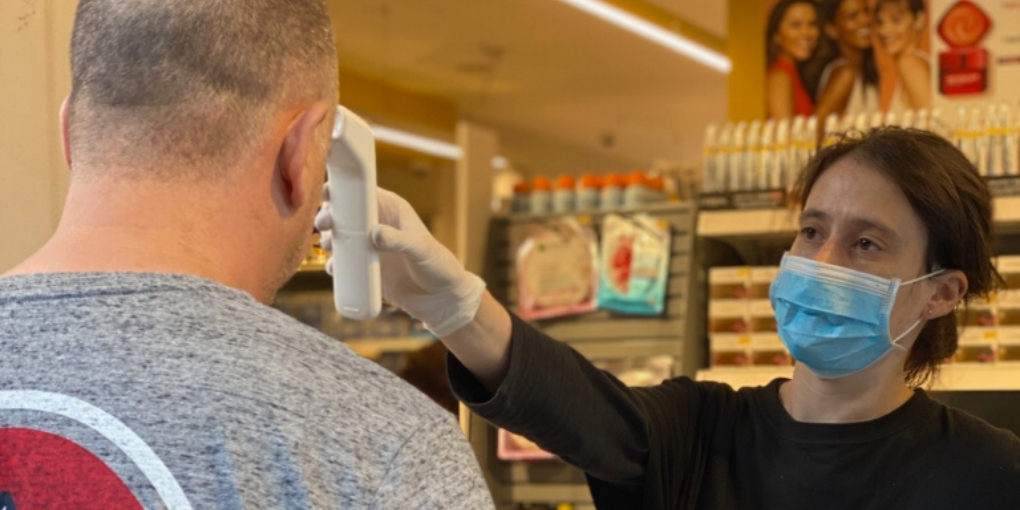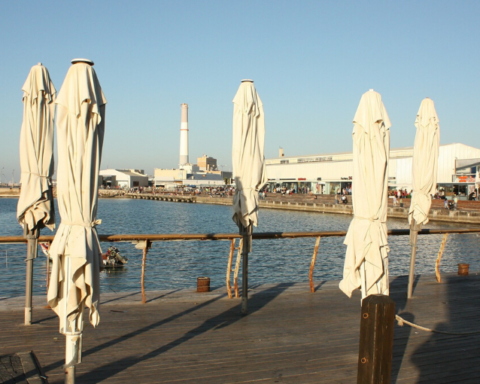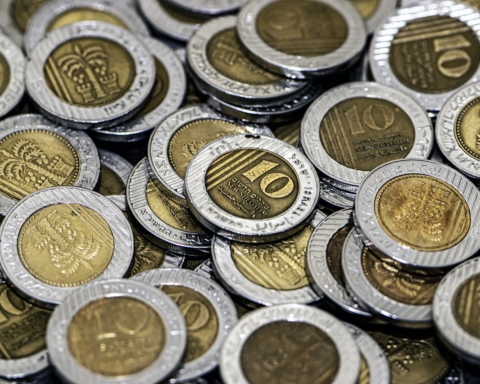The Coronavirus tidal wave has not spared Israel in its passage around the world. As a small country of 9 million people, heavily reliant on international trade for its survival, the impact has been fast and profound.
First, the bad news. The closure of its main (virtually sole) gateway, Ben Gurion International Airport, to tourist and business traffic from around the world, managed to shut down the entire hotel and tourism sector almost overnight. Tourism – vacation, business, and medical – is one of the key sectors in the Israeli economy and employs large numbers of low-skilled and low-income workers. The lay-off of thousands of these employees, combined with workers in other sectors on a temporary (unpaid leave) or permanent basis, has contributed to unemployment leaping from 3% to over 25% in under two months. This has and will cause damage to several sectors of the economy and will take many months at best, and possibly years, to recover. Add in the probable bankruptcy of the national airline El Al, crucial in a country that almost totally requires a plane to enter or leave it, will almost certainly require its renationalization or at the least a large-scale government bail-out.

The subsequent closure of schools, shopping malls, small businesses – except food, pharmaceutical, and banking services, only added to the damage. Not surprisingly the low-income and self-employed have been the first and most to suffer, many of whom survive on a month to month basis, but the middle classes have also been dramatically impacted in a way not previously seen. Even if one’s place of work remained open, many could not work due to the lack of child-care arrangements. Government announcements and promises of aid, loan guarantees, and other forms of assistance made the headlines and are well intended and for the most part logical, but their application has been delayed, so that whilst there is a will, the way has not materialized fast enough. All this at a time when three elections in a year had still not produced a coalition government with a working majority.
Second, the good news. The crisis caught Israel at a time when it could certainly be described as being at its strongest economic position since the creation of the modern State in 1948. A low-level percentage of Government debt to GDP – in the low 60s, very low unemployment 3% (before the crisis struck), low inflation, a high level of foreign currency reserves, record tourism figures of nearly 4.5 million people in 2019, and a burgeoning, world-leading hi-tech and bio-tech sector. This enabled what is still a “caretaker-government” to raise US$ 5 billion in new bonds, in the midst of an international crisis, to help pay for the announced NIS 80 billion economic aid package. The issue was five times over-subscribed and included Israel’s first ever 100-year bond. A strong international vote of confidence in any country.
The Country’s hi-tech sector, the other main economic driver, has, for the most part, continued to function well. Vast numbers of employees are working from home and “Zoom” has entered the everyday lexicon of life. Online businesses, sales, and deliveries have grown and Israel has kicked into its well-honed (war/emergency footing) crisis management status. Several teams of medical researchers are hard at work on a vaccine or treatment for the virus, and collaboration is taking place on an international scale.

The future. Israel’s early and harsh lockdown policy (which included curfews, social distancing measures, compulsory wearing of masks, cancellation of all sports events and social gatherings), its world-leading medical services and spirit of citizen volunteerism in all sectors have managed to keep the death-rate from the virus at internationally low levels – notwithstanding that every death is a tragedy to the family concerned. Not a single medical professional has fallen victim to the virus and the hospitals, including a hotel requisitioned for the mildly ill, have all been functioning in good order.
I personally have had the privilege to participate in the delivery of food packages to those in need and have seen the People of Israel – from ALL its sectors – at its best. Some notable examples have been the immediate conversion of Israel’s top-level military research and other resources for civilian benefit. One of the most practical and efficient examples I have seen, was Israel’s elite Navy divers’ unit converting military oxygen tanks to civilian use, to enable old people in need to remain in the comfort and safety of their own homes, rather than requiring treatment in hospital. A close friend of mine in the military, who is an expert in optics, told me that he and his team are working on a diagnostic scanner to enable the rapid gathering, via scanning, of data to expedite the testing and treatment process. Even the Internal Security Service has utilized its technology to enable the tracking of individuals with the virus and ordinary citizens to know if they have been in “contact” with them and should therefore self-quarantine. All this via an easily downloaded app.
Due to the contribution of all these factors, there are now signs of a partial reopening of the economy in the coming weeks. On the internal domestic front, there is an expectation that there will be a relatively swift rebound, particularly when the schools are reopened. The politicians appear to have understood the need for a formal, stable, and focused government, and there is hope that a wide-based emergency coalition government is on the verge of being formed (albeit a bloated and profligate one). On the external international front, not one, obviously, being under Israel’s sole control, there will undoubtedly be a long and difficult path to tread to get back to “normality”. Israel has faced many serious challenges (both military and economic) in its 72-year history and has always overcome them. The relatively young population (by OECD standards) is energetic and patriotic and is willing to make the sacrifices needed to survive and thrive, no matter what the odds. I am confident for the future.”
This guest article is written by Simon Monk, Business Development Manager of the Israeli Representative Office of the Hyposwiss Private Bank established in 1889 in Switzerland and specialized in Private Banking.








